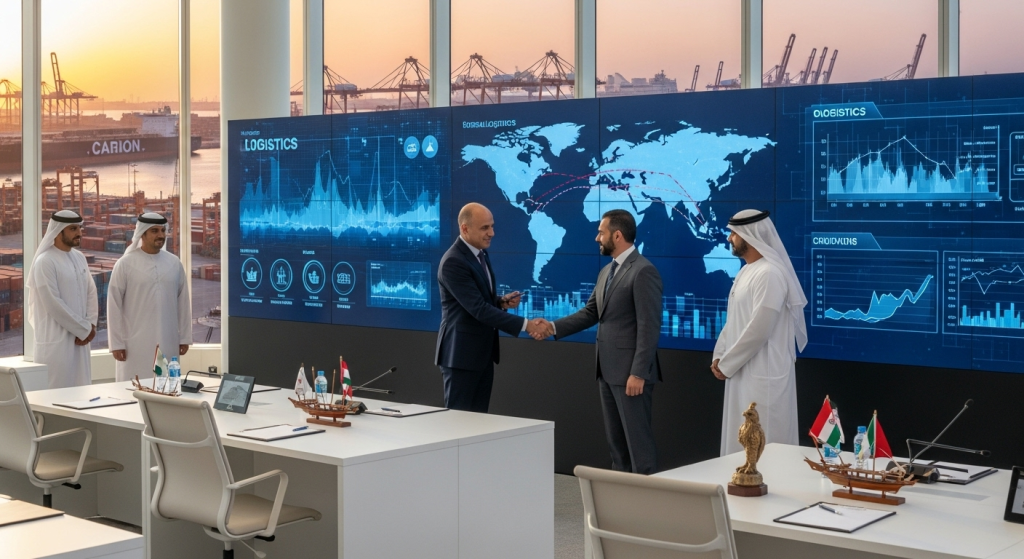Introduction
The United Arab Emirates (UAE) has recently announced a series of initiatives aimed at strengthening trade relations within the Gulf Cooperation Council (GCC) region. As the UAE continues to position itself as a global trade hub, these initiatives are designed to facilitate smoother trade processes, enhance economic cooperation, and foster partnerships among member states. This article delves into the details of these initiatives, their implications for businesses, and the broader impact on the Gulf region’s economy.
Background on Gulf Trade Relations
The GCC, comprising Bahrain, Kuwait, Oman, Qatar, Saudi Arabia, and the UAE, has long been recognized for its economic potential and strategic geographical location. The region has been working towards economic integration and cooperation to enhance trade and investment opportunities. Recent developments, including the COVID-19 pandemic, have underscored the need for stronger collaboration among member states to recover and grow economically.
Overview of the New Initiatives
The UAE’s latest initiatives focus on several key areas aimed at enhancing trade relations:
1. Simplification of Customs Procedures
One of the primary challenges faced by businesses in the region is the complexity of customs procedures. The UAE government has announced plans to streamline these processes, reducing the time and cost associated with cross-border trade. This includes the implementation of a unified customs declaration system across GCC countries, which will facilitate faster clearance of goods.
2. Enhanced Digital Trade Platforms
In line with global trends towards digitization, the UAE is investing in advanced digital trade platforms that will enable businesses to conduct transactions more efficiently. These platforms will provide real-time data on trade flows, customs regulations, and market access opportunities, allowing companies to make informed decisions quickly.
3. Trade Promotion Initiatives
The UAE is also launching trade promotion initiatives aimed at connecting businesses within the GCC. This includes organizing trade fairs, exhibitions, and business matchmaking events that will enable companies to explore new markets and establish partnerships. These initiatives will be supported by the UAE’s Ministry of Economy and various trade organizations.
4. Investment in Infrastructure
Recognizing the importance of infrastructure in facilitating trade, the UAE is committing significant resources to enhance its logistics and transportation networks. This includes investments in ports, airports, and road networks that will improve connectivity within the GCC and beyond.
Implications for Businesses
The new initiatives are expected to have several positive implications for businesses operating in the region:
1. Increased Market Access
With simplified customs procedures and enhanced digital platforms, businesses will find it easier to access new markets within the GCC. This will open up opportunities for exporters and importers alike, enabling them to expand their operations and reach a broader customer base.
2. Cost Savings
The reduction in customs complexities and improved logistics networks will lead to significant cost savings for businesses. Lower operational costs will enhance competitiveness and profitability, especially for small and medium-sized enterprises (SMEs) that may have been previously deterred by high trade costs.
3. Strengthened Partnerships
The trade promotion initiatives will foster collaboration among businesses in the GCC, leading to stronger partnerships and joint ventures. This collaborative environment will encourage innovation and knowledge sharing, benefiting all parties involved.
Challenges Ahead
While the new initiatives present numerous opportunities, there are also challenges that need to be addressed:
1. Regulatory Harmonization
Achieving regulatory harmonization across GCC countries remains a significant hurdle. Each member state has its own regulations and standards, which can complicate trade. Continued dialogue and cooperation among governments will be essential to overcome these challenges.
2. Economic Diversification
As the GCC economies work towards diversification away from oil dependency, there is a need for sustained investment in non-oil sectors. This requires a concerted effort from both the public and private sectors to drive innovation and growth in areas such as technology, manufacturing, and services.
Conclusion
The UAE’s new initiatives to strengthen Gulf trade relations mark a significant step towards enhancing economic cooperation within the region. By simplifying customs procedures, investing in digital trade platforms, promoting trade initiatives, and improving infrastructure, the UAE is positioning itself as a leader in regional trade. Businesses can expect increased market access, cost savings, and strengthened partnerships as a result of these efforts. However, addressing regulatory challenges and promoting economic diversification will be crucial for the long-term success of these initiatives.
For more information on business opportunities and services in the UAE, visit Persian Horizon.
Source: https://www.emirates247.com/business








